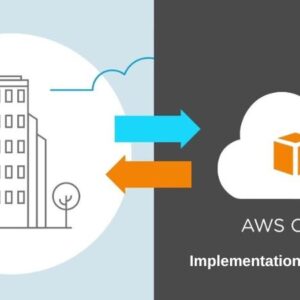In today’s rapidly evolving digital landscape, businesses of all sizes are increasingly turning to cloud computing to streamline operations, enhance scalability, and drive innovation. However, with the multitude of options available, understanding what are the types of cloud computing implementation is essential for making informed decisions that align with organizational goals and requirements. In this comprehensive guide, Crazyhot.net delve into the three primary categories of cloud computing implementation: public cloud, private cloud, and hybrid cloud.
What are the Types of Cloud Computing Implementation?
Public Cloud:
The public cloud represents one of the most widely adopted forms of cloud computing implementation. With this model, third-party providers offer computing resources, such as virtual machines, storage, and networking, over the internet on a pay-as-you-go basis. What are the types of cloud computing implementation? Public cloud services, including industry giants like Amazon Web Services (AWS), Microsoft Azure, and Google Cloud Platform (GCP), cater to a broad range of users, from startups to multinational corporations.

Enterprises embracing the public cloud are poised to reap a myriad of advantages, including unprecedented scalability, agility, and cost-efficiency. Through the public cloud, organizations can swiftly provision resources on-demand, eliminating the necessity for substantial upfront investments in hardware infrastructure. What are the types of cloud computing implementation? Furthermore, exploring the various types of cloud computing implementations reveals a spectrum of options tailored to diverse business needs. Additionally, the communal nature of public cloud environments fosters resource optimization and operational cost reduction, as users harness shared resources to drive efficiency and maximize value.
Private Cloud:
In contrast to the public cloud, a private cloud infrastructure is exclusively dedicated to a single organization, ensuring heightened levels of control and security. Private clouds can be deployed on-premises, within an organization’s own data center, or hosted by a third-party provider. This model affords businesses unparalleled customization options, enabling them to tailor the cloud environment to meet their specific needs and compliance requirements. With robust security measures and dedicated resources, private clouds are particularly well-suited for organizations handling sensitive data or operating in highly regulated industries where data privacy and compliance are paramount concerns.

In a private cloud environment, organizations retain full ownership and management of their resources, enabling them to tailor infrastructure configurations to specific workloads and applications. What are the types of cloud computing implementation? While private clouds offer advantages in terms of control and data sovereignty, they typically entail higher upfront costs and ongoing maintenance expenditures compared to their public counterparts.
Hybrid Cloud:
The hybrid cloud represents a strategic blend of public and private cloud resources, allowing organizations to leverage the benefits of both models. What are the types of cloud computing implementation? With hybrid cloud deployments, businesses can seamlessly integrate on-premises infrastructure with off-site cloud services to optimize performance, scalability, and cost-effectiveness.

One of the key advantages of the hybrid cloud is its flexibility. What are the types of cloud computing implementation? Organizations can dynamically allocate workloads between public and private environments based on factors such as performance requirements, regulatory compliance, and data sensitivity. This enables them to achieve a balance between agility and control while maximizing resource utilization.
The integration between public and private cloud components is facilitated by a myriad of sophisticated technologies, including virtual private networks (VPNs), dedicated connections, and hybrid cloud management platforms. These tools play a pivotal role in enabling seamless data migration, workload portability, and unified management across heterogeneous environments. By leveraging such technologies, organizations can unlock the full potential of hybrid cloud architectures, seamlessly combining the scalability and flexibility of the public cloud with the control and security of private cloud infrastructure. This integration fosters agility, resilience, and efficiency, empowering businesses to adapt to evolving market dynamics and technological advancements with confidence.
Choosing the Right Cloud Computing Implementation:
When evaluating cloud computing implementations, organizations must carefully assess their requirements, objectives, and constraints to determine the most suitable approach. What are the types of cloud computing implementation? Public cloud services offer unparalleled scalability and cost-effectiveness, making them ideal for dynamic workloads, development and testing environments, and cloud-native applications.
However, businesses with strict regulatory compliance or data sovereignty concerns may opt for a private cloud deployment to maintain greater control over their infrastructure and data assets. What are the types of cloud computing implementation? Meanwhile, organizations seeking to optimize performance, resilience, and flexibility may find the hybrid cloud model to be the most advantageous, combining the strengths of both public and private clouds.
Final Thought
In conclusion, the landscape of cloud computing implementation is characterized by a diverse array of options, each offering unique advantages and considerations. What are the types of cloud computing implementation? By understanding the distinctions between public, private, and hybrid cloud deployments, organizations can make informed decisions that align with their strategic objectives, enhance operational efficiency, and drive business innovation in an increasingly digital world.





